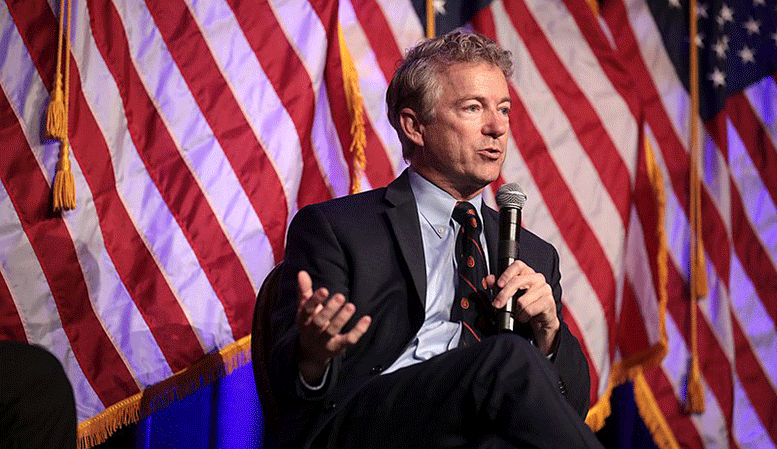[[{“value”:”
U.S. Sen. Rand Paul has revived legislation that would raise the legal THC limit for industrial hemp from 0.3% to 1.0%, a move that comes as lawmakers simultaneously escalate efforts to restrict intoxicating products derived from hemp – and threatening CBD.
The law seeks to ease regulatory pressure on hemp farmers and processors by raising the allowable delta-9 THC concentration in hemp and adjusting federal testing and documentation rules.
But the proposal arrives at a politically fraught moment. A GOP-led House committee recently advanced a spending bill that includes language that could severely restrict consumable hemp products, especially cannabinoids like CBD. While Paul’s bill aims to support the hemp sector, critics warn that increasing the THC threshold could further entangle the plant in controversy, given that CBD concentrations rise proportionally with THC—and that CBD-derived intoxicants are already drawing heavy scrutiny. The intoxicating compounds that come from hemp are mostly cooked up in the lab with CBD as base material.
Try, try again
Paul’s reintroduction of the HEMP Act marks the latest in a string of hemp-related efforts dating back to his early Senate tenure. First floated in late 2020, the bill failed to advance past committee. Versions were reintroduced in 2021 and again in 2024, both stalling amid growing concern over hemp-derived intoxicants.
The 1.0% THC cap proposed in the HEMP Act would bring the U.S. in line with some international standards, and is supported by many hemp growers who say environmental conditions can cause THC to spike unexpectedly in compliant crops. In states where hemp over 0.3% THC is considered marijuana, farmers can be forced to destroy their crops, resulting in serious financial losses.
Supporters argue that a higher threshold would provide more flexibility and reduce risk, especially as THC levels in hemp can vary due to factors beyond a grower’s control. However, the proposal also has global trade implications, as most countries remain aligned with the 0.3% limit—potentially complicating exports for U.S. producers.
Testing reforms
In addition to changing the THC cap, Paul’s bill addresses practical concerns about testing and transportation. Currently, hemp flowers must be tested within a narrow 15-day harvest window to ensure compliance with federal THC limits. Farmers argue that the process is expensive, labor-intensive, and unreliable.
The HEMP Act proposes testing the final hemp product rather than the raw flower, a move aimed at easing the burden on small farmers and improving consistency in compliance. It also broadens the types of documentation farmers and processors can carry when transporting hemp to avoid law enforcement seizures. Instead of lab results, producers could carry a copy of their USDA hemp license to prove legality under the law.
Political headwinds
Despite its farmer-friendly provisions, the HEMP Act faces long odds. Lawmakers across party lines are increasingly focused on controlling the unregulated and sometimes dangerous marketplace for hemp-derived intoxicants, including synthetic cannabinoids and high-potency delta-8 and delta-10 THC products.
A recent Congressional Research Service (CRS) report warned that provisions in the House spending bill would “effectively criminalize” many currently legal hemp-derived products, including CBD. Although report language was amended to clarify that non-intoxicating cannabinoids like CBD are not the intended target, the bill’s core text remains unchanged.
In this climate, Paul’s proposal to increase THC limits—however practical for farmers—may be seen as undermining the broader push for safety and standardization in hemp-related products. As synthetic intoxicants proliferate, many lawmakers are leaning toward tighter restrictions, not looser ones.
Rand Paul and hemp
Paul’s advocacy follows in the footsteps of his father, Rep. Ron Paul, who introduced hemp legislation repeatedly between 2005 and 2012.
As a senator, Rand Paul supported key provisions in the 2014 Farm Bill that enabled state hemp pilot programs. He co-sponsored the Industrial Hemp Farming Act of 2015, and played a supporting role in the 2018 Farm Bill, which removed hemp from the Controlled Substances Act and formally legalized it nationwide.
He also co-sponsored the 2023 Hemp Access and Consumer Safety Act, a bipartisan effort to authorize FDA regulation of hemp-derived cannabinoids in dietary supplements, food, and beverages.
“}]] The law seeks to ease regulatory pressure on hemp farmers and processors by raising the allowable delta-9 THC concentration in hemp and adjusting federal testing and documentation rules. Read More


